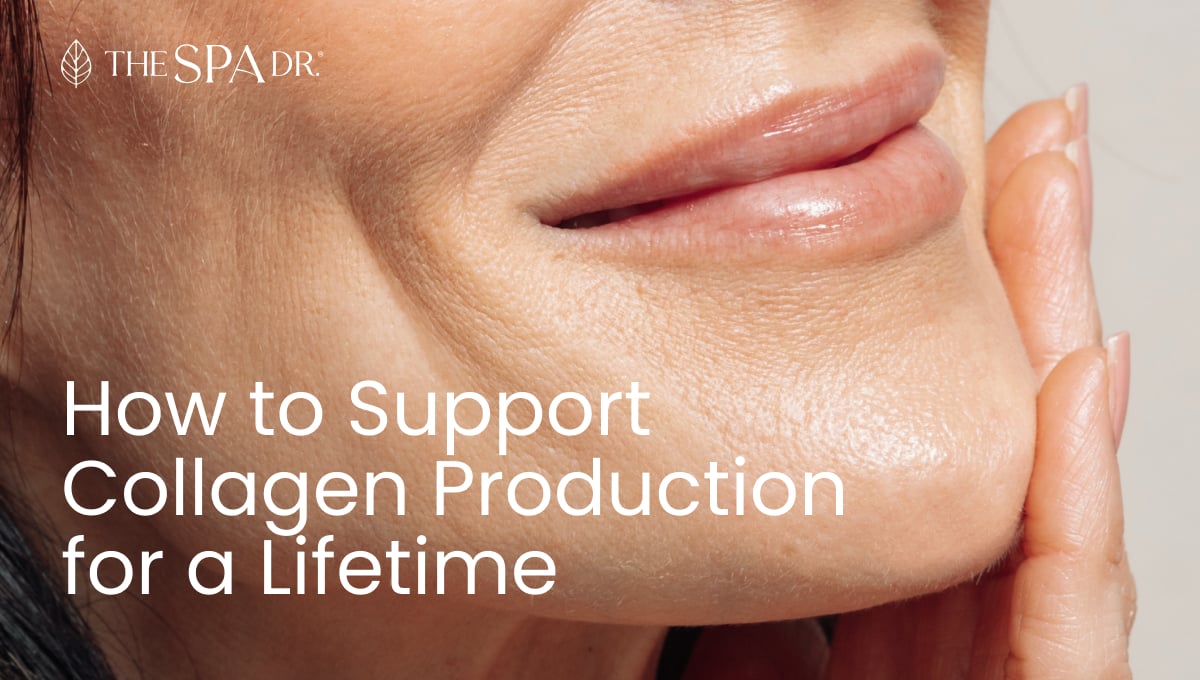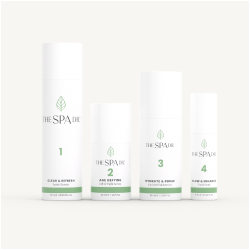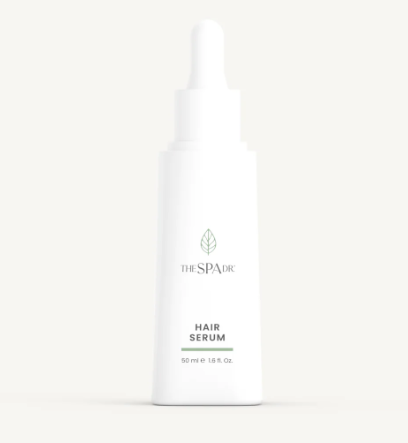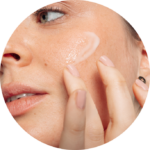As we age, one of the most significant transformations in our body occurs with collagen, the “glue” that holds our bodies together.
Collagen plays a vital role in maintaining our youthful appearance and overall health. It is a structural protein that is essential for our skin, joints, and many tissues – and it makes up about a third of all of the protein in our bodies. In your skin, it provides the firmness, elasticity, and suppleness that keeps the skin looking youthful.
The gradual decline in collagen production can lead to visible signs of aging such as fine lines, wrinkles, and reduced skin elasticity. The good news is the lifestyle choices we make today can support collagen and our skin for a lifetime.
Collagen Through the Decades
Collagen production declines from a relatively young age.
As early as age 20, the dermis layer – or the thickest layer of the skin – produces 1% less collagen each year.
At age 30, collagen begins to decline in the body.
And as we enter our 40s, collagen production has either dropped dramatically or stopped completely.
By our fifties, the amount of collagen in our skin will decline even more and menopause may accelerate this process.
Collagen is the driving force behind the elasticity of your skin. As collagen production declines, the firmness of your skin diminishes. This reduction in collagen can become evident through a noticeable sagging effect. Skin becomes thinner and the appearance of wrinkles and fine lines exacerbates.
This is a natural part of aging. However, there are things you can do to support healthy collagen levels and production throughout your lifetime.
Root Causes of Collagen Breakdown
To stop premature collagen decline, it’s important to know some of the top root causes.
#1. Oxidative Stress
Oxidative damage speeds the breakdown of your skin’s elastin and collagen. As we age, elastin fibers in the skin deteriorate, causing a loss in elasticity, or what keeps your skin wrinkle-free.
Collagen comprises 70 to 80 percent of the skin’s dry weight and gives the dermis its structure. Elastin is a relatively small part of the dermis, but its function is important. As collagen declines with age, our skin becomes thinner.
As the body’s external barrier, our skin is directly exposed to environmental stressors like sunlight, wind, and pollutants. Excessive UV radiation from the sun generates free radicals in the skin, leading to oxidative damage. Free radicals wreak havoc on collagen.
This damage can manifest as premature aging, sunburn, inflammation, and more. Additionally, aging itself is a form of oxidative stress, as our natural antioxidant defenses decrease with age, leaving us more vulnerable to free radical damage.
#2 Excess Sugar
These days, hidden sugars are hidden in nearly every processed or packaged food. When sugar stays in the bloodstream, rather than being ferried to cells the way it’s supposed to for energy, glucose (blood sugar) binds to proteins called glycation in the body. Two of those proteins are essential for healthy, naturally youthful skin: collagen and elastin. Glycation can accelerate the formation of wrinkles and sagging skin.
Sugar can also affect what type of collagen your skin is composed of. The most abundant collagens in the skin are types I, II, and III. Type III is the most stable and longest-lasting plump wrinkle-resistant collagen.
When we are young, our skin has a lot of type III collagen. Excessive glycation turns type III collagen into type I. This is a thinner and more fragile collagen – creating wrinkles. Keep an eye on your sugar consumption to maintain a healthy blood sugar balance and healthy skin.
#3 Hormonal Imbalances
Elevated levels of the stress hormone cortisol can cause a breakdown in collagen over time, which leads to accelerated fine lines and wrinkles.
#4 Blood Sugar Imbalances
As I mentioned before, excess sugar intake makes collagen lose its structure, making the skin more prone to wrinkles and sagging. However, blood sugar problems can cause much bigger issues than fine lines and wrinkles. It’s very important to watch your blood sugar.
I’m not saying you can never eat sweets. Rather, it’s time to keep an eye on your consumption and support healthy blood sugar balance through some simple diet and lifestyle changes.
What We Can Do Support Collagen Production
To support collagen production and counter the effects of oxidative stress, consider the following dietary and lifestyle changes.
Important dietary nutrients for collagen support
Vitamin C: This essential vitamin is vital for collagen synthesis. Research even suggests that it can help reverse UV damage to the skin. Incorporate Vitamin C-rich foods like citrus fruits, strawberries, and bell peppers into your diet.
Probiotics: Probiotics can boost collagen production in the skin, enhancing elasticity and reducing sun damage. Find these beneficial microorganisms in fermented drinks, yogurt with live cultures, sauerkraut, kimchi, and miso soup.
Amino acids: Amino acids like arginine, glutamine, lysine, and proline are crucial for collagen production. Obtain these amino acids from sources like grass-fed beef, organic poultry, wild fish, and nuts. Collagen can also be found in meat, especially in tougher cuts, as well as in skin, tendons, and bones. My book, Natural Beauty Reset, teaches you how to create stews and bone broth to help you pick the best food sources for collagen.
Bone broth: You might be surprised, but consider incorporating bone broth into your diet. It’s a fantastic source of collagen and can support skin health.
Essential fatty acids: These help maintain skin cell hydration and function. Incorporate foods rich in essential fatty acids into your diet to support your skin.
Lifestyle habits to support collagen
Stay hydrated: Drinking an adequate amount of water is crucial for skin hydration and maintaining collagen’s structure and function.
Sun protection: Protect your skin from UV radiation by wearing sunscreen, protective clothing, and sunglasses. UV rays can accelerate collagen breakdown, leading to premature aging.
Limit sugar and processed carbohydrates: High sugar consumption can lead to glycation, a process that damages collagen and results in sagging skin and wrinkles. Reduce your intake of sugary and highly processed foods.
Manage stress: Chronic stress can release cortisol, which may break down collagen. Incorporate stress-reduction techniques such as meditation, yoga, or deep breathing exercises into your daily routine.
Adequate sleep: Ensure you get enough quality sleep as it plays a crucial role in collagen production and skin repair.
Regular exercise: Engage in regular physical activity to improve blood circulation, which can promote the delivery of nutrients to skin cells. Exercise also stimulates collagen production.
Collagen supplements: Consider taking collagen supplements such as The Spa Dr. Collagen Plus if your diet lacks collagen-rich foods.
Use natural, nontoxic skincare: Nutrient-rich skincare ingredients and formulations can help decrease inflammation and support healthy skin cell turnover, collagen production, and hydration. Vitamin C, for example, can aid in promoting collagen production when used on the skin.
Maintaining skin and collagen health is a long-term commitment. By making these lifestyle changes, you can help support collagen production and maintain healthy, youthful-looking skin as you age.
The Spa Dr.® Approach
At The Spa Dr.®, our approach is to help shine the light on the skin and health care information and offer our guidance to support you on your journey.
Dr. Trevor Cates’ book, Natural Beauty Reset, provides an in-depth look at how you can nourish your body and support your health and hormones through the seasons.
The Spa Dr.® offers natural skin care products that are safe and free from chemicals and toxins that can harm your skin and health. Our products are formulated to contain key nutrients in their pure and active form to provide optimal results. In addition, our products are pH balanced towards mild acidity to promote and protect a healthy skin microbiome.
If you are not already part of The Spa Dr.® community, please join us on social media.
Share this article with your friends and spread the word to promote harmonized hormones and natural beauty!








Reader Interactions
Great information. Thank you!